by: William Hong
The millisecond that Dumb and Dumber clicks into focus on the television screen, something magical happens to me. It can be a terrible day, a stressful day, or a sick day, but within seconds of seeing Jim Carrey’s bowl cut, I’m 10 years old again. The number of movies I have once memorized is small (The Lion King, A Few Good Men, and, inexplicably, While You Were Sleeping), but Dumb and Dumber is perhaps the only one where I have reasonably thought, “I could perform this entire film from start to finish, on my own.” On multiple occasions in college, I think I tried.
I’m a creature of repetition when it comes to entertainment: Law and Order marathons drift by on lazy Saturday afternoons, Arrested Development episodes stream at night, and certain lugubrious British singers, particularly those sounding like they have a cold, play relentlessly in my earbuds. In all the hours I’ve spent re-consuming movies, shows, books, and songs, I could have learned a real skill, like playing an instrument or speaking several languages. Instead, I’ve perfected fake skills, like performing an uncanny impersonation of Jack Nicholson’s final courtroom monologue.
Going back to the same pop-culture fare for seconds, thirds, and thirtieths isn’t so abnormal. If anything, my re-consumption habits are tame compared to some of you, who have have read Harry Potter more than 10 times, watched Friday more than 100 times, and spent more of your waking life with The West Wing than Aaron Sorkin has. Musicologists estimate that for every hour of music-listening in the typical person’s lifetime, 54 minutes are spent with songs we’ve already heard. Forget the next big thing. We’re all suckers for the last big thing.
Rewatching All 16 Coen Brothers Movies
Jennifer Lopez in “Marry Me”
America Needs a Rom-Com Bailout
KEVIN TOWNSEND, SOPHIE GILBERT, DAVID SIMS, AND HANNAH GIORGIS
Illustration of Kanye West in sunglasses
The Tragedy of Kanye West
SPENCER KORNHABER
Pop culture is a relentless machine of newness and manufactured surprise. We queue around the block for new comic-book-movie installments and crash HBO Go to watch season finales. And yet, I have spent 100 hours of my life watching a movie I could perform verbatim in my living room.
Why do we spend so much time with stories whose endings we already know?
The question “why do people do the same thing over and over?” has entranced philosophers, anthropologists, economists, and psychologists for centuries. “That which is repeated has been, otherwise it could not be repeated, but the very fact that it has been makes the repetition into something new,” wrote Kierkegaard (whom I have not reread).
The most durable theories fit roughly into four categories: habits, addictions, rituals, and status quo bias.
Habits, such as going for a run to begin your day, are regular and automatic. We don’t even have to think about them, and that’s part of their value. Addictions, such as smoking, are like habits on evil steroids. They are unmanageable and lead to physical dependence. Then there are rituals, such as Thanksgiving or wearing lucky socks before presentations. Unlike addictions, we choose our rituals to be symbolic and expressive rather than be ruled by them. Unlike habits, they’re infrequent.
Finally there’s status quo bias, the observation that people tend to stick with previous decisions, because the cost of coming to a new decision is mentally exhausting. Perhaps you recognize one of these excuses …
“I don’t love this job, but whatever, I don’t want to look for a new one.”
“[I’ve already decided for reasons I don’t remember that] global warming is a myth, and you can’t persuade me otherwise.”
“No, I won’t go to Club Monaco. Gap’s pants are fine. I’m a Gap person!”
When Cristel Antonia Russell and Sidney Levy interviewed people who had reread a book, rewatched a movie, or revisited a sentimental site, their experiences didn’t neatly fit into any of these categories. Instead, Russell and Levy found that people sought out familiar entertainment for specific reasons—to recapture a lost feeling, for example, or to appreciate the passage of time. Summing up their research, here are four reasons why so many people prefer their entertainment stuck on repeat.
The Simple Reason
The least complicated reason why people rewatch a movie (e.g.) is that … well, they really like that movie!
Familiar fare requires less mental energy to process, and when something is easy to think about, we tend to consider it good.
If this explanation sounds too unsophisticated for you, feel free to use intensely multisyllabic names for the phenomenon, like “reconstructive consumption.” That’s the term Russell and Levy use to describe interviewees who rewatched episodes of Battlestar Galactica and Seinfeld to remind themselves what happened and pick up on smaller details that they could appreciate once they caught up to the overall plot.
The New York Times
Best Slow-Cooker Recipes
Savory slow-cooked meals for those who would much rather “fix it and forget it.”
SPONSORED BY THE NEW YORK TIMES
See More
Watching something again and again seems like it would make entertainment lose its initial appeal. But psychologists have found that repetition breeds affection. Familiar fare requires less mental energy to process, and when something is easy to think about, we tend to consider it good. A movie we’ve seen seven times before is blissfully easy to process.
The scientific term for this is “mere exposure effect,” meaning that we like something more merely because we’ve been previously exposed to it. So there is evidence not only that we replay songs that we like, but also that—up to a certain point!—we like songs the more often that we play them.
The Nostalgic Reason
The same way that it’s nice to watch familiar movies merely because they are familiar, it can be nice to remember the past merely because it’s the past.
The word nostalgia—a combination of the ancient Greek words nostos (homecoming) and algos (pain)—was coined in the 17th century to describe a neurological disease among depressed Swiss mercenaries fighting abroad. The theory was that soldiers were homesick for the snowcapped mountains, or perhaps cognitively impaired by the constant ringing of cowbells in Swiss pastures (seriously, that was the theory). In the four centuries since its unlikely birth, nostalgia has transformed from a dubious disease into a bona fide business model, fueling pop-culture retrospectives on VH1 and Simpsons marathons on FXX.
The New York Times
Patagonia in Autumn
A journalist took a grueling mission to photograph a majestic Patagonia in fall.
Clay Routledge, a psychologist who studies nostalgia at North Dakota State University, says there are two strains of this cultural affliction: historical (a nostalgia for the past, in general) and autobiographical (nostalgia for an individual’s past, specifically). Sometimes, we watch an old movie to extract a fondness about the way things were. Often, we are more self-interested than that. In one of Routledge’s studies, subjects exposed to popular songs and lyrics from their younger days were more likely to report feeling “loved” and that “life is worth living.”
We like repeating pop-culture experiences because they help us remember the past, and the act of remembering the past feels good. Heidegger called it “redredging.” The researchers offer another term: regressive re-consumption. It’s using entertainment as a time machine to revisit a lost memory.
The Therapeutic Reason
One particularly affecting subject in Russell and Levy’s study, who goes only by the name “Nelson,” reports going on a trip to Florence and Siena, Italy, to retrace a vacation he had taken decades earlier with his wife and two young children. Forty years later, Nelson had lost his wife and his son. He carefully planned the trip to refill his memory bank, stopping at the same sites, hotels, and restaurants. It was “a kind of pilgrimage, a sentimental journey,” Nelson recalled, “to reconcile myself to this time of my life.”
Sometimes, we watch an old movie to extract a fondness about the way things were.
Using nostalgia as a kind of therapy isn’t uncommon. It might even be prudent. One study on nostalgia found that it offered physical comfort in the form of warmth. Not only are cold temperatures more likely to trigger our instincts to seek nostalgic fare, but also “music-evoked nostalgia predicted increased physical warmth,” according to the cutely named study “Heartwarming Memories.”
The New York Times
Uncover the facts. $1 a week.
Save now on groundbreaking journalism from experts in the field.
SPONSORED BY THE NEW YORK TIMES
See More
One of the nice things about old movies is that they can’t surprise us. We know how they end, and we know how we’ll feel when they end. This makes the re-consumption of entertainment a bit like “emotional regulation,” Russell and Levy write. New books, movies, and TV shows can deliver spectacular thrills, but they can also waste our time and disappoint us. Old movies never disappoint us: We get older, they stay the same age. Returning to familiar entertainment is, to be perfectly stiff about this sort of thing, emotionally efficient. We’ll get exactly the emotional payoff we’re looking for—no surprises.
The Existential Reason
A year ago, at my college reunion, I was walking through the south stretch of campus, on a golden fall day in Chicago, and I suddenly felt a bracing urge to listen to Jeff Buckley. I hadn’t heard Buckley in years, perhaps since graduation. Most famous for his cover of “Hallelujah,” he only recorded one major album before he died in a drowning accident, and I had it on loop the entire summer of 2004, into my September pre-orientation, and through my first month of school.
Replaying his music nine years later was like opening a time capsule and watching its treasures react to fresh oxygen. Inside the songs lived not only the memories of my first crush, my first journalism lecture, and my first 5 a.m. debate, but also the time-won answers to all of those anxieties—the knowledge of a failed romance, a magazine job I loved, and the fact that my 5 a.m. friend was getting married.
“The dynamic linkages between one’s past, present, and future experiences through the re-consumption of an object allow existential understanding,” Russell and Levy write. “Reengaging with the same object, even just once, allows a reworking of experiences as consumers consider their own particular enjoyments and understandings of choices they have made.” This isn’t mere nostalgia or therapy. It’s pop culture as palimpsest—an old memory, overlaid with new perspective.
Later in the afternoon, after I had walked around campus enough to remember why I stopped listening to Jeff Buckley, I came across an old roommate. Like me, he was a rabid rewatcher of movies, particularly Goodfellas and ’90s comedies, and the kind of person who would happily tune into Billy Madison or a Jim Carrey film every day of the week. “How was your summer?” he asked.
“It’s ironic,” I said, “but I just got back from Aspen.”
“Mmmmmmm,” he replied without missing a beat. “California! B’yooootiful.”


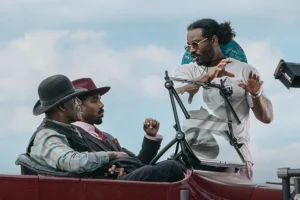
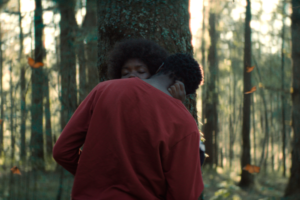
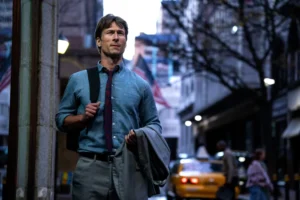


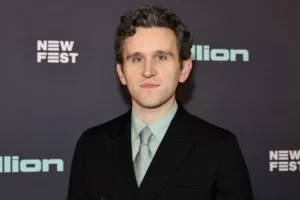
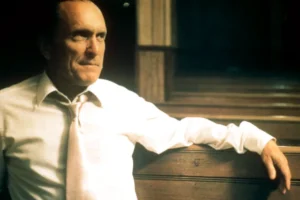


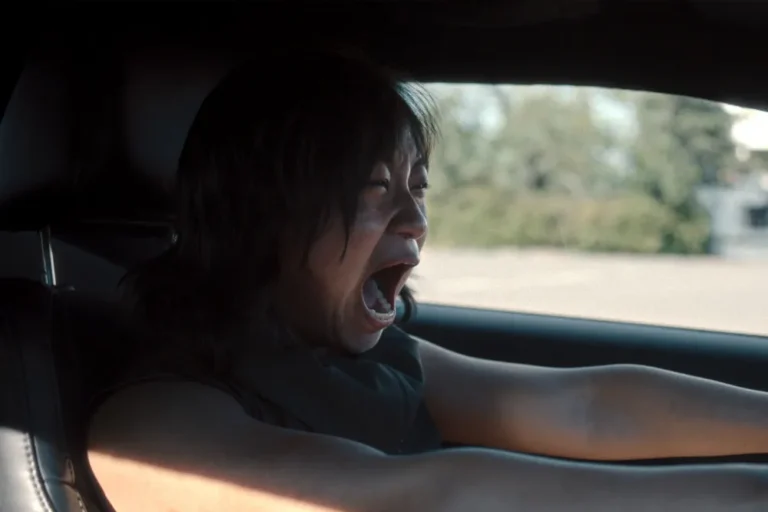

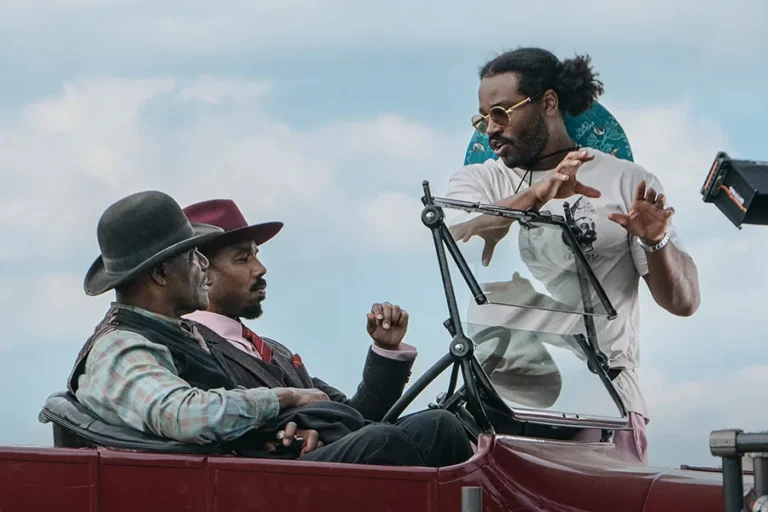


+ There are no comments
Add yours